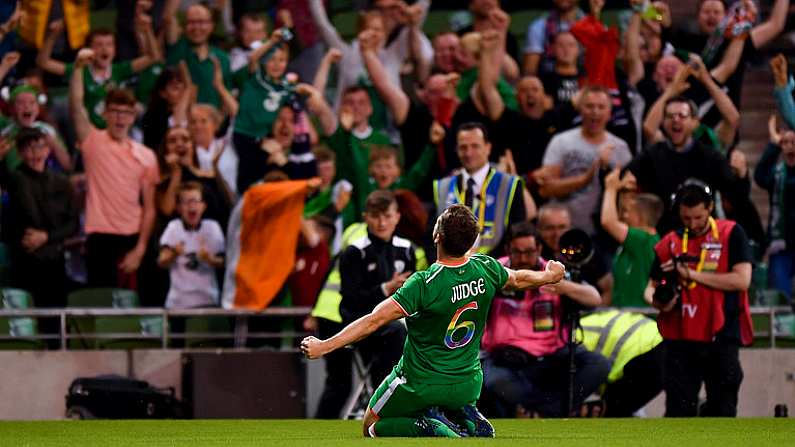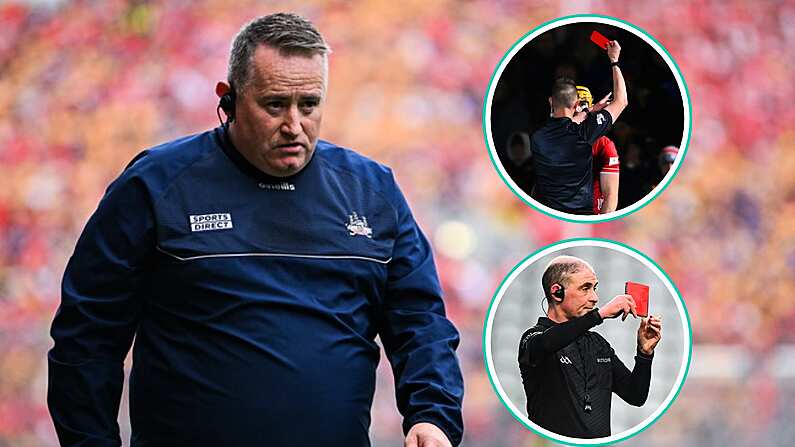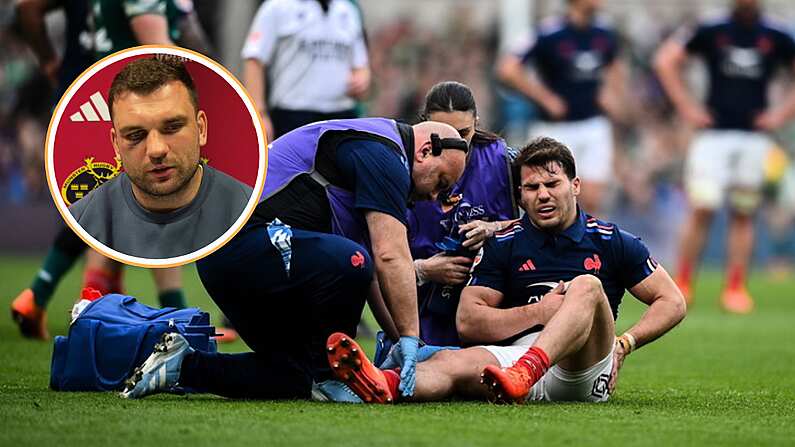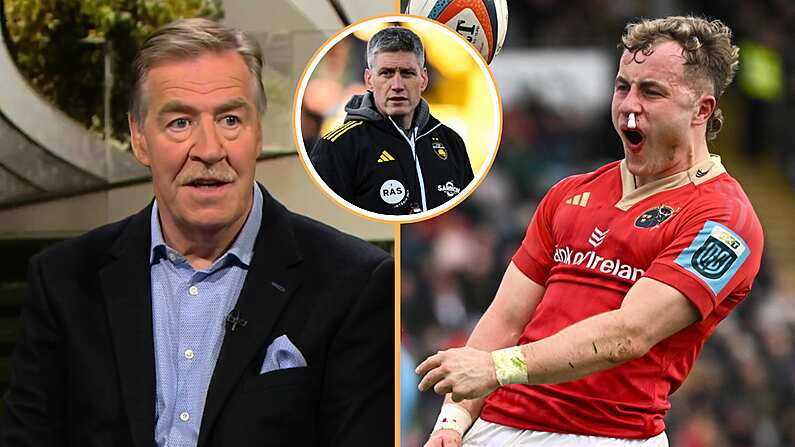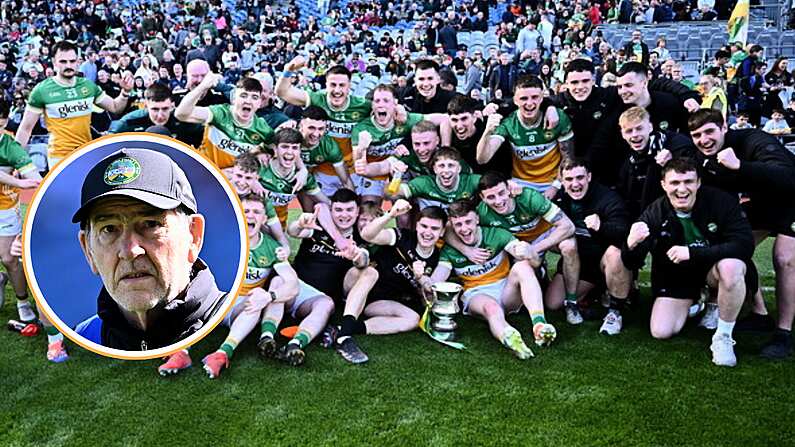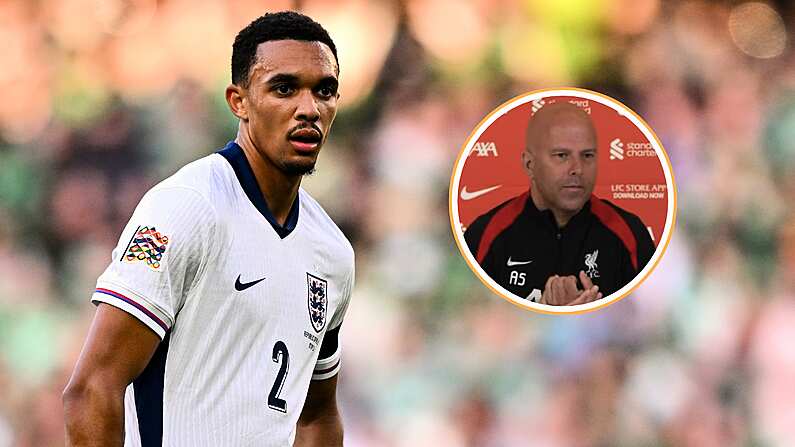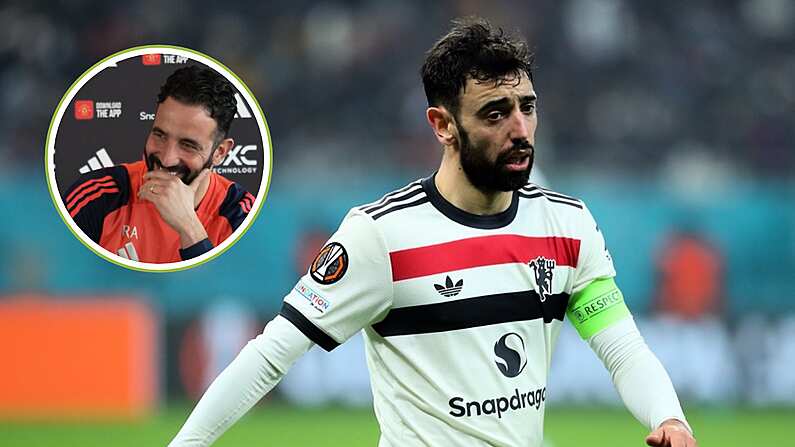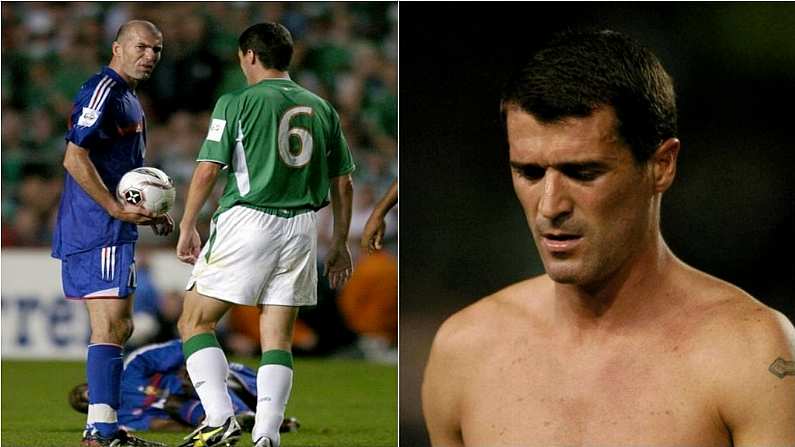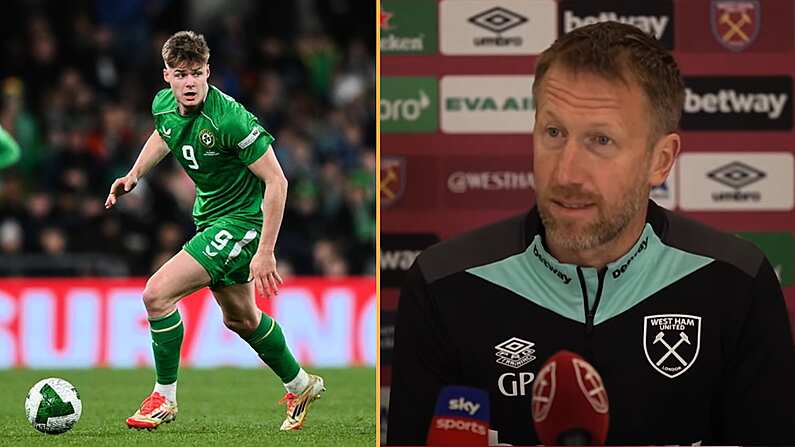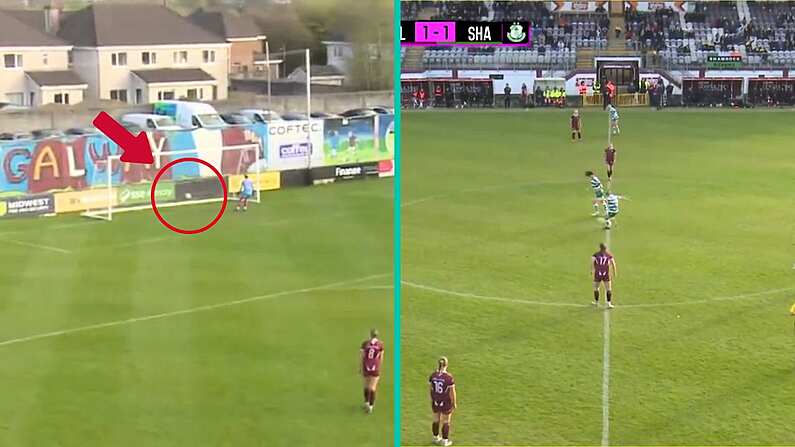A game 12 days before a World Cup between two teams who are internationally known as 'not going' was always going to resemble those cramped, craggy and deeply unsatisfactory parties that pervaded your adolescence with a deep acknowledgment that there was a much better party going on elsewhere.
Nonetheless, like all of these parties, this game had its own shabby, idiosyncratic charm.
The first-half was as enervating an event as the French and Turkish games, with the Aviva's sleeping ears only startled when John O'Shea jogged off into international retirement after 33 minutes. He did so with an admirable and characteristic lack of bullshit: jogging off with a salute to the crowd, refusing to dawdle to accept more than a couple of embraces as he left the field.
The build-up to this game was garnished with Tim Weah's promise to thank the Irish defender for all that he had given to the game. He didn't do so on the field, but even the juxtaposing of their names is a sharp reminder of the longevity of O'Shea's career: when O'Shea made his Irish debut, Weah was a year old, unwittingly bearing witness to the end of his father's European career.
As O'Shea left, so too did the last, lingering link with the glorious promise of the Irish underage squads of the late '90s. Throughout the first-half, Ireland played as if trying to accentuate the passage of that time. Declan Rice sent a simple ten-yard pass to James McClean out of play. McClean, having been ushered into space brilliantly by Callum O'Dowda, turned back and hoisted a cross-field ball to Rice over the sideline. Kevin Long twice played passes directly to American players, and sent Colin Doyle into a tizzy with a sloppy, blind backpass. That his splayed, cross-field pass to Seamus Coleman (a contender for the best Irish pass of 2018) was accidental and as a result of an over-zealous sliding tackle was fitting.
Ireland did not look threatening at all, and by half-time, the FAI would be forgiven for worrying about 2018's Goal of the Year Award. Ireland's formation could most accurately be described as a 3-5-1-1, with Graham Burke playing behind Jon Walters, who landed the role as the Loneliest Man In Irish Sport in the absence of Shane Long. Ireland's wing-backs sat much too deep and much too narrow, however, with the resulting formation looking like a flat back five sitting behind Declan Rice.
Anytime Ireland did get the ball out wide, wingbacks McClean and Coleman were frustrated by the paucity of options ahead of them, so turned back and allowed Shane Duffy or Kevin Long to get the hoofing out of the way. Thrice McClean lashed O'Dowda's ears over his failure to run into the left-hand channel ahead of him. O'Dowda, however, was the best part of Ireland's first-half performance, twice winning free-kicks in dangerous positions through his courage and conviction in running at defenders.
He does, however, continue to drift out of games, and while he is not in the same league as Wes Hoolahan, O'Dowda bears all the hallmarks of Ireland's next persecuted artist: the next subject of outrage when he is benched by O'Neill for Ireland's high-profile away games.
Not that the U.S. were a whole lot better.
Shorn of Christian Pulisic, much of their entertainment came from the team-sheet. The game was refereed by Andrew Dallas and the U.S. captain was Wil Trapp: the first time those words have been said around the Aviva without being followed by an upward inflection and the words 'play Wes'.
Ireland, in the throes of their mediocrity, contrived to trail at half-time: O'Shea's replacement Darragh Lenihan lost Bobby Wood on the second ball from a free-kick.
Mercifully, this was the nadir.
Ireland clawed their way back into the game in familiar circumstances. A corner was rolled short to O'Dowda, who hoisted a ball to the back post toward Kevin Long. Bill Hamid's only defeat as a starting 'keeper for the U.S. had come in Dublin in 2014, but the Aviva seems to do weird things to his mind. Hamid dropped virtually every cross he tried to claim, and dutifully did so again here. Lenihan, Meath's first-ever Irish international, was denied a second piece of history when his goalbound reaction to the rebound was prodded in by Graham Burke on the goalline.
Burke's reward was a curled finger from O'Neill. Daryl Horgan arrived and went to left wing-back, which allowed James McClean forward to support Walters. From here, Ireland finally snapped out of the stasis they have been trapped in since Copenhagen. The winning goal was arguably our best piece of play since McClean's winner in Cardiff: Declan Rice cooly found James McClean free in the penalty area, and his heavy touch allowed substitute Alan Judge to steal some thunder and send the winner in off the crossbar.
Martin O'Neill said that Judge celebrated as if he had just won the World Cup for Ireland. While we're missing it, this deeply imperfect game showed there are a few other things worth getting excited about. Judge lost two years of his career when he broke his leg in three places two months before the Euros; Graham Burke became the first League of Ireland player to score for Ireland since Ray Treacy did so 40 years ago; Enda Stevens made his debut seven years after his last under-21 appearance and six since he was feted in Shamrock Rovers' Europa League run; Darragh Lenihan became Meath's first Irish international; Seamus Coleman made his first appearance at the Aviva since breaking his leg while Declan Rice and Colin Doyle made their first-ever appearances in Dublin; Daryl Horgan got the crowd out of their seats after a miserable six months in which he started just two games.
After the game, Martin O'Neill tugged a few people down to earth in admitting that it was "debatable" as to whether the squad is any better than it was before he handed out eight debuts in three games, but he will quietly breathe a sigh of relief. In the realm of results that don't matter, this one comes closest to mattering: a first win from a losing position since 2013; more than a goal in a game for only the second time in a year; a first goal of 2018; the arrival of Declan Rice.
17 years ago, John O'Shea made his debut in an Irish squad that read Given; Kelly, Dunne, Staunton, Harte; Reid, Roy Keane, Carsley, Kennedy; Duff and Robbie Keane. Perhaps none of the Irish players he left on the field this evening would make that team, and while the profound implications of this grim reality will be felt in 12 days, tonight was a night to reinvest in football's ability to tell a story that matters to somebody, even if it doesn't matter to anybody else.
See Also: Player Ratings As Ireland Steal Late, Late Victory Against The United States

